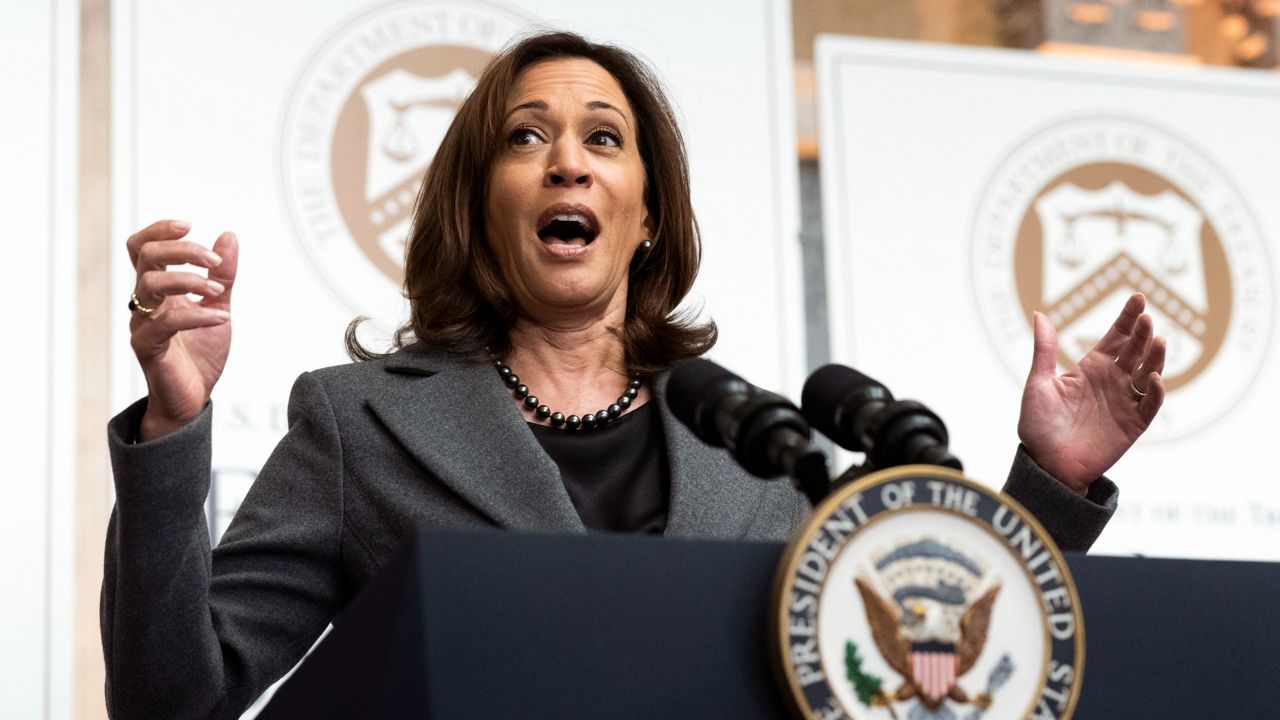Vice President Kamala Harris announced Tuesday a number of new steps the Biden administration, in partnership with the private sector, is taking to help minority small-business owners.
What You Need To Know
- Vice President Kamala Harris announced Tuesday a number of new steps the Biden administration, in partnership with the private sector, is taking to help minority small-business owners
- The actions include ordering federal agencies to each set a goal of dedicating 12% of their federal contracting budget to small, disadvantaged businesses and the Small Business Administration will soon propose a rule that would lift a moratorium on new small business lending companies
- Harris announced the initiatives Tuesday at the Freedman's Bank Forum at the Treasury Department in Washington.
- Harris said a new coalition of have more than 20 corporations and foundations has led to tens of billions of dollars being committed “to promote and then provide capital to community lenders to support entrepreneurship in minority-owned businesses and to expand access to financial services”
Among the actions:
The Office of Management and Budget is ordering federal agencies to each set a goal of dedicating 12% of their federal contracting budget to small, disadvantaged businesses.
The Small Business Administration will soon propose a rule that would lift a moratorium on new small business lending companies. The goal is to expand the lender base receiving SBA loan guarantees and increase small-business lending, particularly in underserved markets.
The Minority Business Development Agency will issue $100 million in grants, funded by last year’s American Rescue Plan, to provide technical assistance for businesses owned by socially and disadvantaged individuals.
Harris announced the initiatives Tuesday at the Freedman's Bank Forum at the Treasury Department in Washington. She noted that the Freedman’s Savings Bank was established by Congress in 1865 to help newly freed Black Americans before it failed nine years later.
“Freedman's Bank was guided by a vision, the vision of an economy that works for all Americans and includes all Americans, the vision of a nation in which all people have access to the financial resources they need to succeed, to thrive and to determine their own future,” the vice president said. “Truly, at the heart of that bank was the concept of self-determination. Over a century and a half later, in communities across our nation, that vision remains unrealized.”
Citing a Stanford University Institute for Economic Policy Research survey, Harris said Black entrepreneurs are three times more likely to say they did not apply for a loan because they feared their application would be denied.
Harris also said Black and Latino entrepreneurs are less likely than white applicants to be approved for small-business loans from traditional financial institutions, people in rural areas and tribal communities lack access to traditional banking services, and Asian Americans face language barriers that limit their opportunity to access capital.
“President Biden and I know that for our nation to succeed, these disparities must be spoken of, acknowledged and addressed,” Harris said.
During the Biden presidency, the Treasury Department has allocated more than $15 billion in funding and tax credits to community lenders and other capital providers with the goal of helping minority-owned businesses.
In July, Harris announced the creation of the Economic Opportunity Coalition, in which more than 20 corporations and foundations are partnering to spur private investments and address disparities for small businesses. The EOC includes Bank of America, Capital One, Citi, Goldman Sachs, Google, McDonald’s and Netflix.
Harris said the coalition’s lenders have so far committed tens of billions of dollars “to promote and then provide capital to community lenders to support entrepreneurship in minority-owned businesses and to expand access to financial services.”
“America is a nation driven by the ambition and aspiration of her people,” the vice president said. “And so let us continue to fight to make sure all people have a chance to realize their dreams and to determine their own future. Because when we do, we not only advance economic justice, we strengthen our economy as a whole, creating prosperity and opportunity for all together.”



